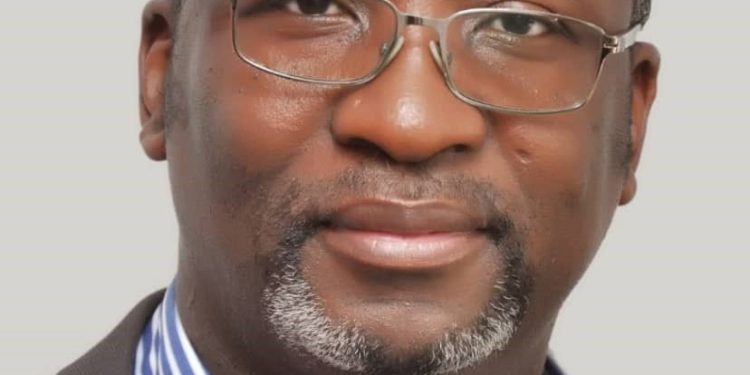COCOBOD in ICU: Can Dr. Raddy Abbey Resuscitate Ghana’s Cocoa Lifeline?
Ghana’s cocoa industry, a cornerstone of the national economy, is facing a crisis. The Ghana Cocoa Board (Cocobod), once celebrated for safeguarding farmers and setting global quality standards, now teeters on the brink of collapse. Burdened by mounting debt, bureaucratic inefficiencies, and a credibility deficit, the board struggles to fulfill its dual mandate of protecting farmers while generating revenue for the state. Farmers face stagnant incomes, smuggling has risen, and public confidence has eroded. The question on everyone’s mind: can Dr. Raddy Abbey, the newly appointed lCEO , revive this critical institution?
Founded in 1947 following the 1937 “cocoa hold-up,” Cocobod was designed to shield farmers from global price volatility, acting as the sole buyer while funding research and innovation through the Cocoa Research Institute of Ghana (CRIG). Over time, Cocobod evolved into both a farmer-support institution and a critical source of national revenue. Its mandate expanded to include research, extension services, subsidized input distribution, and rigorous quality control, positioning Ghana’s cocoa beans as the global standard. Simultaneously, Cocobod became a vital instrument for state revenue mobilization, funding broader development priorities through export margins.
Yet by the 2010s, the board’s dual role became contested. Successive governments were accused of diverting cocoa funds to cover budget deficits rather than reinvesting in productivity. Under President Nana Akufo-Addo (2017–2024), inefficiencies and declining yields coincided with farmers seeing little benefit from soaring international prices. For instance, mid-season price adjustments lagged behind global spikes, fueling unrest. Then the current NDC administration in 2025/26 announced that it had fulfilled a “70% of FOB” pricing pledge, but its choice of benchmark and modest farmgate raise drew backlash from farmer groups and civil society due to modest farmgate increases. Once a proud custodian of Ghana’s cocoa supremacy, has increasingly seen as a debt-ridden bureaucracy struggling to maintain credibility, with urgent calls for reform, partial liberalization, and a farmer-centered value-chain model.
So, what is the potential Prescription for Revival for Dr Randy Abbey this may require several critical reforms.
- Refocus on Core Mandate – Divest non-core, quasi-fiscal activities to reduce expenditure and concentrate on price stabilization, quality control, research, and farmer support.
- Transparent Pricing Mechanism – Link farmgate prices to global FOB rates with a pre-agreed share for farmers to ensure they benefit from price spikes and curb smuggling.
- Modernize Operations – Use AI, IoT, satellite technologies, blockchain, and digitized administration to enhance efficiency, accountability, and supply chain transparency. Establish a robust monitoring and evaluation unit.
- Public-Private Partnerships (PPPs) – Engage private firms for logistics, warehousing, and processing to reduce financial burden while retaining oversight.
- Alternative Financing – Issue corporate bonds, access sustainability-linked financing, and attract development partners to supplement traditional loans.
- Internal Market Liberalization – Grant Licensed Buying Companies greater autonomy to stimulate competition, improve services, and enhance farmgate efficiency.
- Shift to Regulatory Role – Transition from price-setter to regulator, focusing on quality standards, Living Income Differential (LID), research, and extension services.
- Empower Farmer Cooperatives – Support cooperatives in marketing and financing, giving farmers greater control and a larger share of the cocoa value chain.
The road ahead for Dr. Raddy Abbey is challenging, but strategic reforms, financial innovation, and modernization can restore Cocobod’s credibility, boost farmer welfare, and secure Ghana’s position as a global leader in sustainable, high-quality cocoa production. This revival aligns closely with President John Mahama’s “Reset Agenda,” which prioritizes economic stabilization, farmer empowerment, and institutional efficiency. By embedding Cocobod’s reform within this broader national reset, Ghana can not only rescue its cocoa lifeline but also reinforce the Reset Agenda’s goal of a more resilient, transparent, and globally competitive economy. The nation and its farmers are watching closely; failure is not an option.
About Author
Dr. Bernard Tetteh-Dumanya is a distinguished Ghanaian financial economist, entrepreneur, finance and development strategist, and academic leader with over two decades of experience in investment management, institutional banking, and large-scale project financing across Ghana and West Africa. As CEO of TD Afrika Grupp Limited, he has built and scaled a multinational consultancy delivering innovative solutions in finance, environmental economics, and agricultural development, while leading capital-raising initiatives for multi-million-dollar infrastructure and entrepreneurial projects. He has held senior roles in asset management, banking, and training institutions, including SIC Financial Services, UBA Ghana, and EMPRETEC Ghana Foundation, successfully optimizing financial operations, restructuring organizations, and empowering SMEs. Academically, he has served as Vice-President and Dean at multiple universities, overseeing program development, accreditation, and institutional growth. Dr. Tetteh-Dumanya is also a published author on topics ranging from portfolio management to economic policy, with a proven record of advancing sustainable agriculture, fostering public-private partnerships, and mentoring emerging business leaders.








